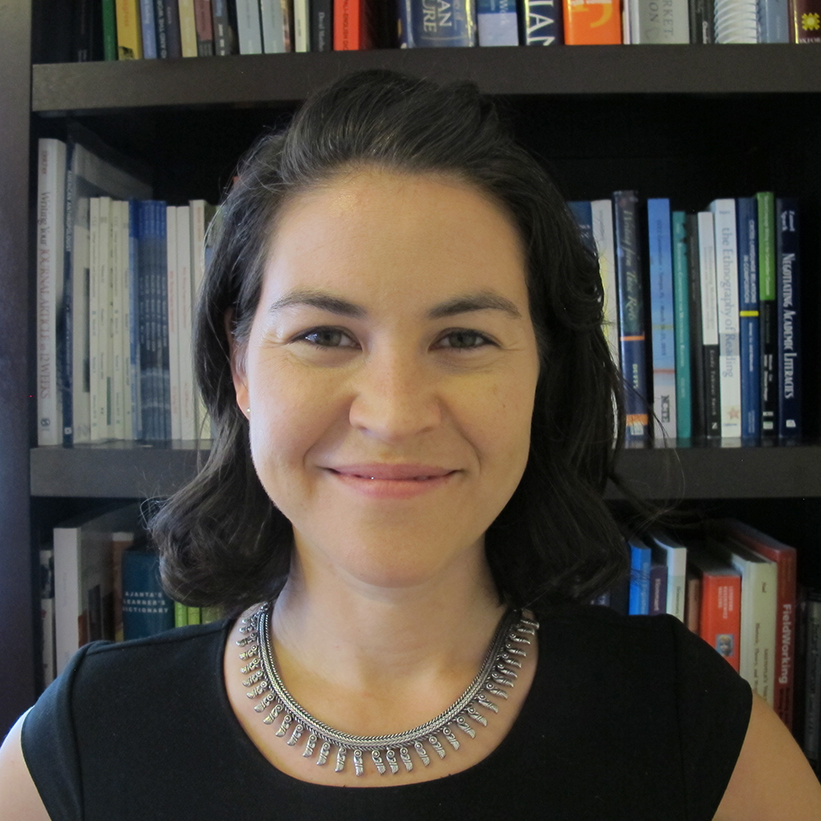- Ph.D., University of Arizona, 2015
- M.A., West Virginia University
- B.A., College of Charleston

Katherine Silvester
she/her/hers
Associate Professor, English
Director, Composition

she/her/hers
Associate Professor, English
Director, Composition
Selected Articles
Silvester, Katie. “At the ‘Ends of Kinship’: Women Re(kin)figuring Literacy Practices in Protracted Displacement.” Literacy in Composition Studies, vol. 10, no. 2, 2023, pp. 38-60.
Silvester, Katie. “A Pivotal Praxis: Critical Conversations to Foster Plurilingual Competence.” Plurilingual Pedagogies for Multilingual Writing Classrooms: Engaging the Rich Communicative Repertoires of U.S. Students, edited by Kay M. Losey and Gail Shuck. Routledge, 2022, pp. 111-124.
Silvester, Katherine. “Transnational Lives and Lifelong Learning in Mutual Assistance.” Contested Spaces of Teaching and Learning, edited by Janise Hurtig and Carolyn Chernoff. Lexington Press, 2019, pp. 195-211.
Silvester, Katherine. “‘I Cannot Stay Idle in This Community’: Translocal Investment in ELT for Refugee Resettlement.” Critical Views on Teaching and Learning English Around the Globe: Qualitative Research Approaches, edited by Jose Alvarez, Shireen Keyl, Cathy Amanti, and Erin McKinney. Information Age Publishing, 2016, pp. 177-192.
Book Reviews
Silvester, Katie, Review of Sanctuary: Exclusion, Violence, and Indigenous Migrants in the East Bay, by Cruz Medina. Composition Studies (in press).
Silvester, Katherine. Review of Del Otro Lado: Literacy and Migration Across the U.S.-Mexico Border, by Susan V. Meyers. Comparative Education Review, vol. 60, no. 1, 2016, pp. 192-193.
Silvester, Katherine. Review of Artifactual Literacies: Every Object Tells a Story, by Kate Pahl and Jennifer Rowsell. Reflections: A Journal of Public Rhetoric, Civic Writing, and Service Learning, vol. 14, no. 1, 2014, pp. 143-146.
Silvester, Katie and Anne-Marie Hall. Review of The Word and the World: The Cultural Politics of Literacy in Brazil, by Leslie Barlett. Community Literacy Journal, vol. 9, no. 1, 2014, pp. 96-101.
Custom Reader and Textbook Contributions
Silvester, Katie and Xin Chen, editors. Languaging across Texts and Contexts: A Reader for Multilingual Writers. Fountainhead Press, 2022.
Recent Conference Presentations
“‘Doing the Work’ of Domestic Violence Prevention: Community and University Perspectives on Activating the Radical Imagination,” Community Writing Conference, October 5, 2023. (Chair).
“Re-imaging Rhetorics of Care: Community Engaged Learning in the Context of Direct Service and Advocacy Writing,” Conference on Community Engaged Learning, IU Center for Innovative Teaching and Learning, April 21, 2023.
“Reconceptualizing Online Writing Instruction: Designing and Teaching Online Academic Writing Courses for Multilingual Writers,” College Composition and Communication Conference, March 9-12, 2022.
“Community Listening: Workshopping Possibilities of Local, National, and Global Action,” Conference on Community Writing, October 21-23, 2021.
“Beautiful Questions as a Hopeful Practice: Collaborative Storytelling as an Approach to Community Dementia Care,” Conference on Community Writing, October 21-23, 2021.
“Beyond Dementia: Reframing Memory Loss through Collaborative Storytelling,” Modern Language Association Conference, January 7-10, 2021.
“Ruptured Hopes: Interrogating Reciprocity in Community Writing Partnerships,” College Composition and Communication Conference, March 25-28, 2020. (Chair).
“Memory Work: Life Stories and Communal Memory at the Intersection of Community
Writing and Eldercare,” Conference on Community Writing, October 18, 2019. (Chair).